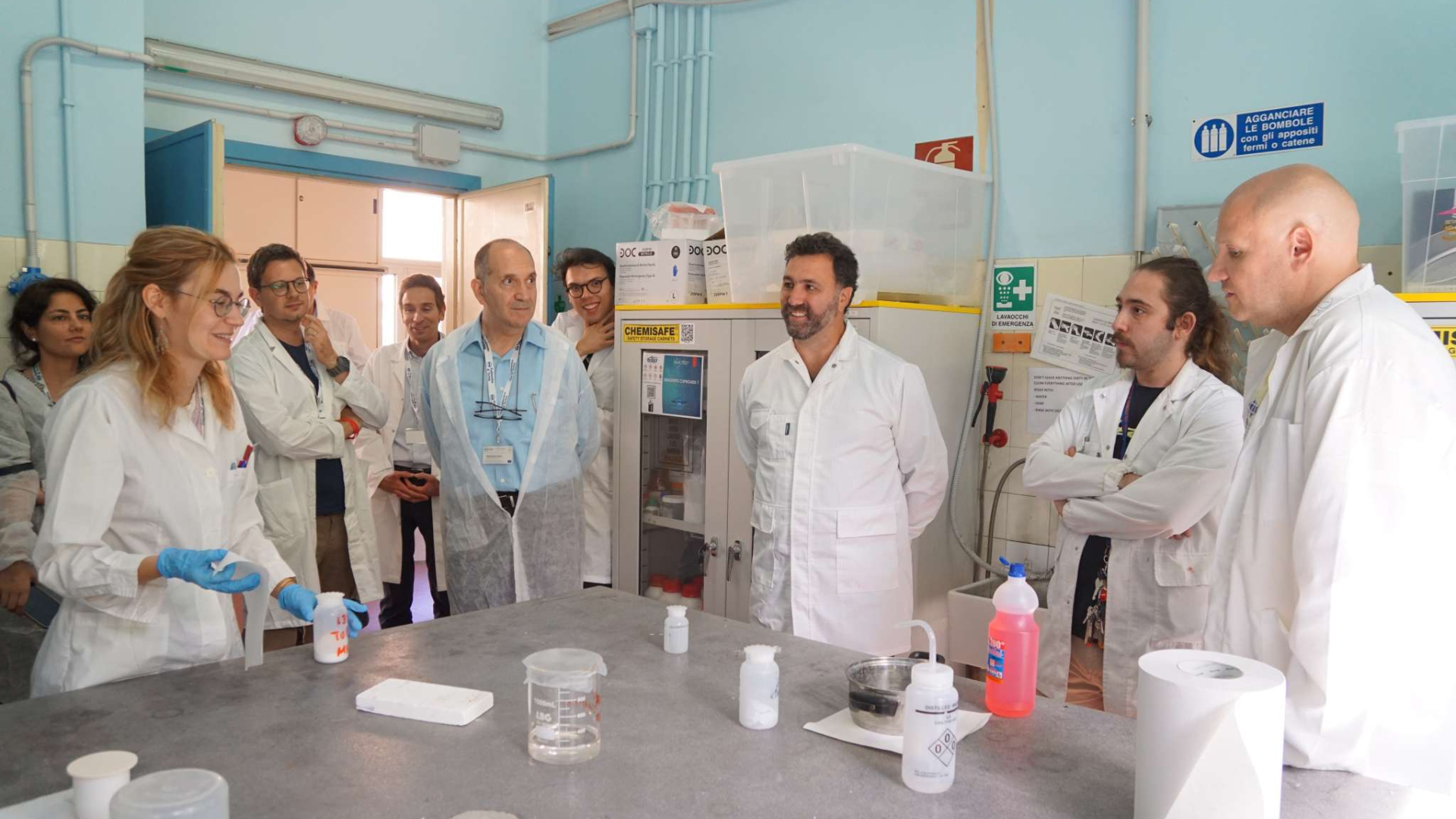
At PoliTO the first doctoral network school of the European project ReBone
Four days of lectures, laboratories and international exchange to train the new generation of researchers in the field of biomaterials.
This was the spirit with which, from 15 to 18 September 2025, Politecnico di Torino hosted the first doctoral network school of the European project ReBone, a MSCA-Doctoral Network funded by the Marie Skłodowska-Curie Actions Horizon Europe program, dedicated to the design, fabrication and characterization of bioactive and customized bone implants made of glass and ceramics..
Coordinated by professors Enrica Vernè and Francesco Baino from the Department of Applied Science and Technology-DISAT, the initiative represented a high-level training and exchange opportunity for the young researchers involved in the project.
ReBone is a multidisciplinary project aiming to improve treatments for critical-size bone defects through the development of personalized bioactive implants. Its innovative approach combines advanced computational design tools with in silico modelling, state-of-the-art characterization techniques and experimental validation methodologies.
The goal is to create devices that combine mechanical strength, optimal physico-chemical properties and osteointegration capability, adapting to the anatomical and clinical needs of each patient.
The four-day school offered the 10 PhD students involved in the project – including Maria Erato Pianou, PhD student at Politecnico di Torino – an intensive training programme structured along two main tracks: technical-scientific competences (hard skills) and transversal competences (soft skills).
“Participating in the Network School at Politecnico di Torino was an incredibly insightful and rewarding experience for me.” states Maria Erato Pianou, who adds: “The program gave us the chance to interact deeply, not only through academic presentations but also through activities that bonded us as a team and created a real sense of community within the doctoral network. Thanks to the presentations of course, we could get insight into each other’s projects, gaining a clearer picture of the different approaches and research directions being pursued.”
Not only lectures and laboratory work: the school was also a valuable opportunity for sharing ideas, exchanging feedback, and building personal connections among doctoral candidates, supervisors, and associated project partners. Thanks to the contributions of the consortium members, participants were able to discuss the progress of their individual projects, take stock of the overall research, and verify its alignment with ReBone’s objectives and milestones.
Maria Erato Pianou adds: “For me, it was particularly special to show my colleagues what I am actually working on here in PoliTo, allowing them to see my research in action and better understand its context and goals. This exchange of knowledge led to valuable discussions and helped us to realize how our individual tasks fit into the bigger picture of the project. At the same time, informal conversations and feedback sessions with supervisors provided fresh perspectives, encouraging us to think about possible collaborations and new activities that could strengthen the impact of our work. Overall, the school combined scientific insight with strong connection between us, leaving us motivated and inspired for the next steps in our research journey.”
From the technical viewpoint, the lectures and practical activities focused on additive manufacturing techniques for biomedical ceramic devices, with particular emphasis on robocasting and vat photopolymerization of bioactive materials.
The programme also addressed methodologies for the synthesis and advanced characterization of bioactive ceramics and glasses, acoustic and microtomographic techniques for scaffold analysis, and computational modelling approaches for the personalized design of bone implants.
Already on the first day, the doctoral candidates took part in a laboratory session with a practical demonstration of 3D printing of ceramic materials.
Alongside the strictly scientific aspects, the school devoted ample space to transversal skills. Participants attended a workshop on scientific communication and outreach, with a particular focus on the use of social media, and a team-building session led by a certified teacher in theatrical improvisation. They also took part in a seminar on research integrity, delivered by a CNR expert, which highlighted best practices and ethical conduct in science.
In their closing remarks, professors Enrica Vernè and Francesco Baino stated: "Following the spirit of the project and highlighting its two pillars – creation of a doctoral network for regenerating bone and speeding up patient’s recovery – we like to relaunch ReBone slogan: “Walk with us!”"